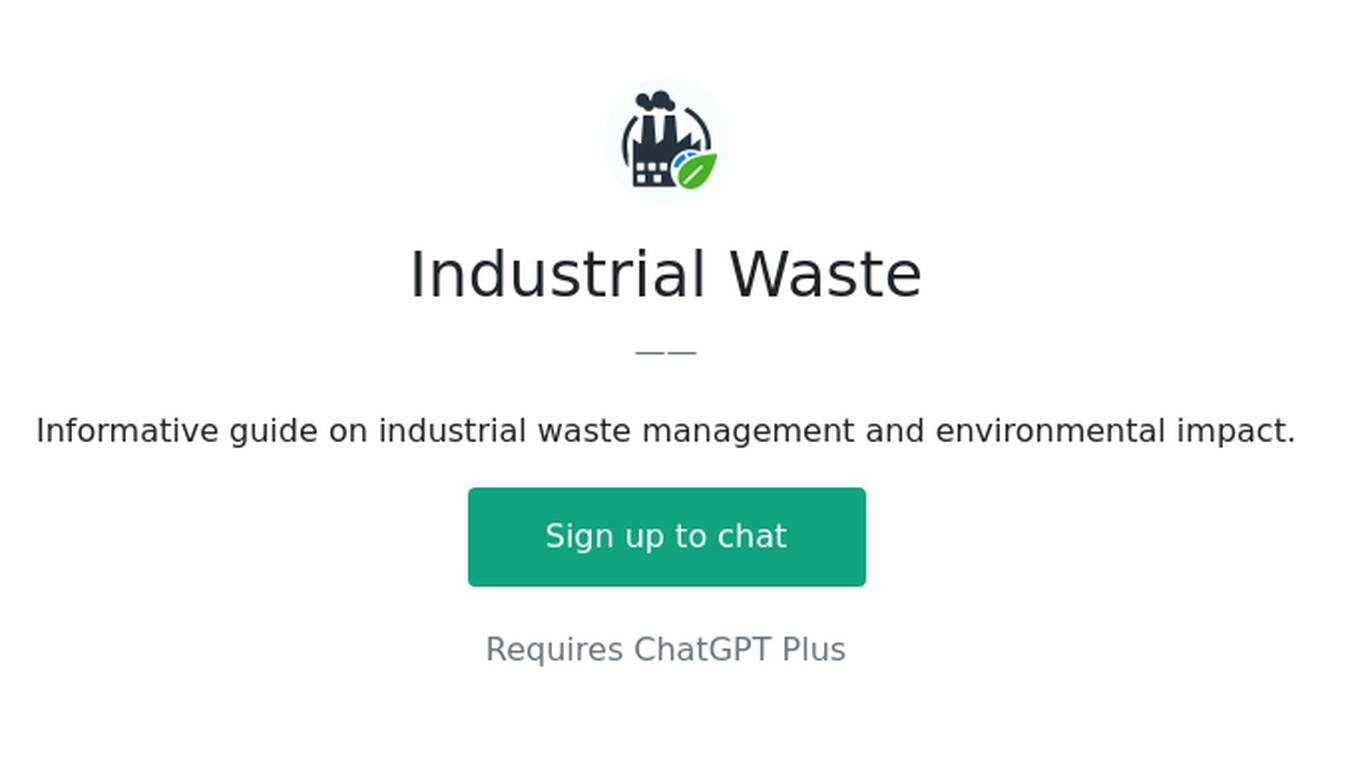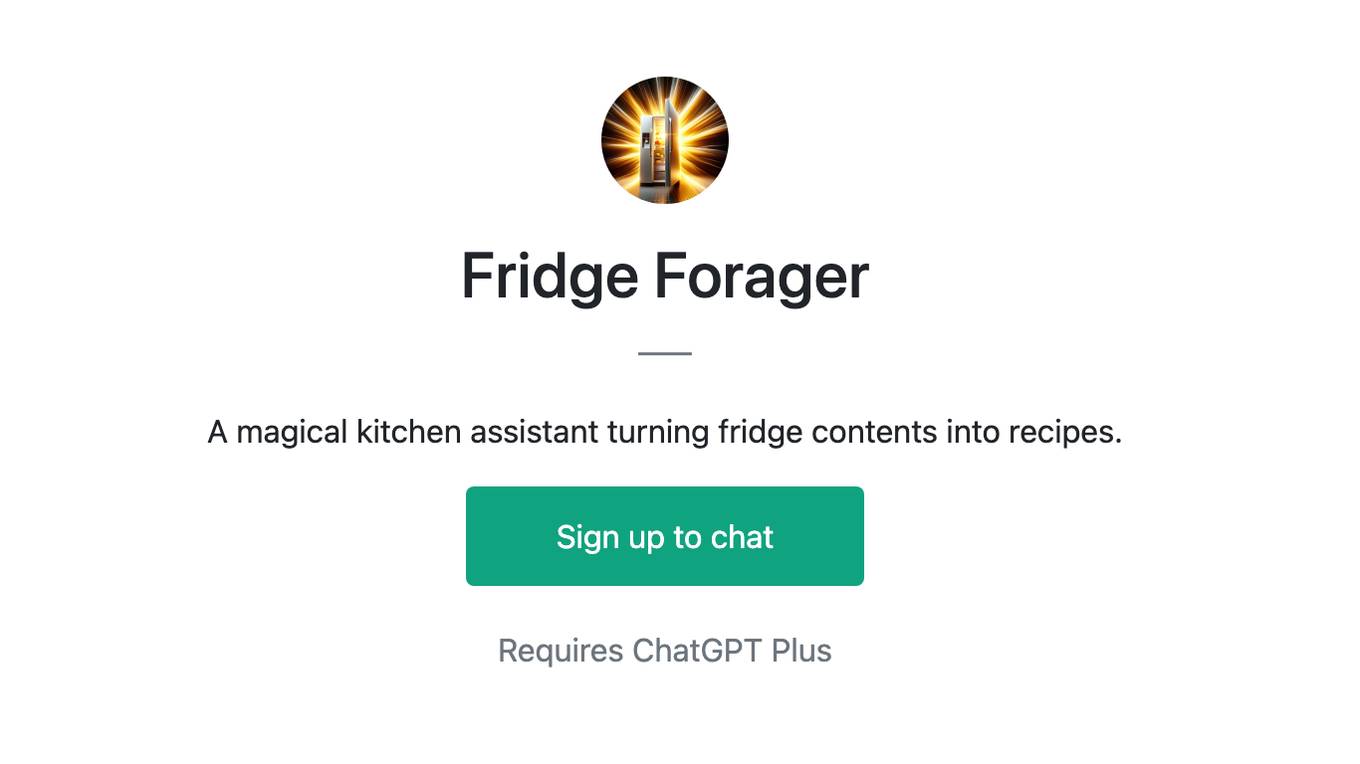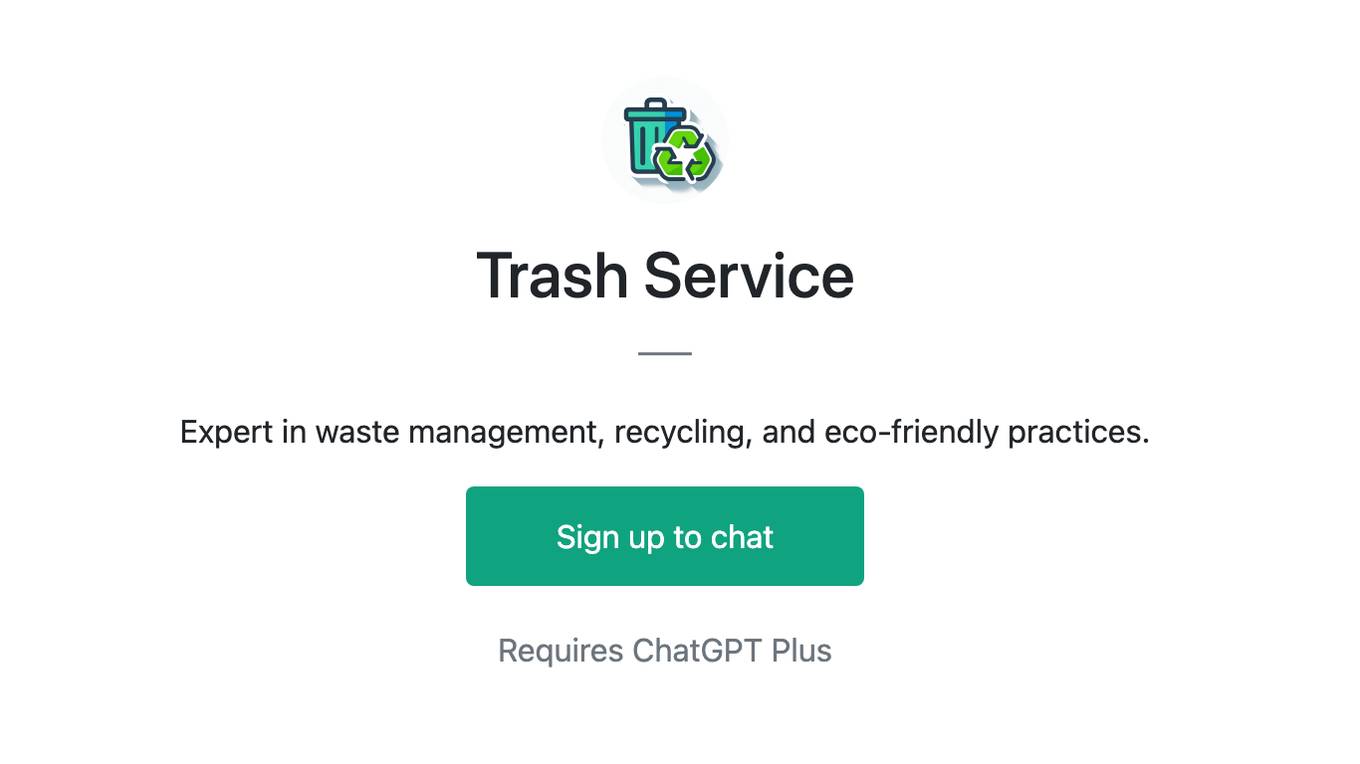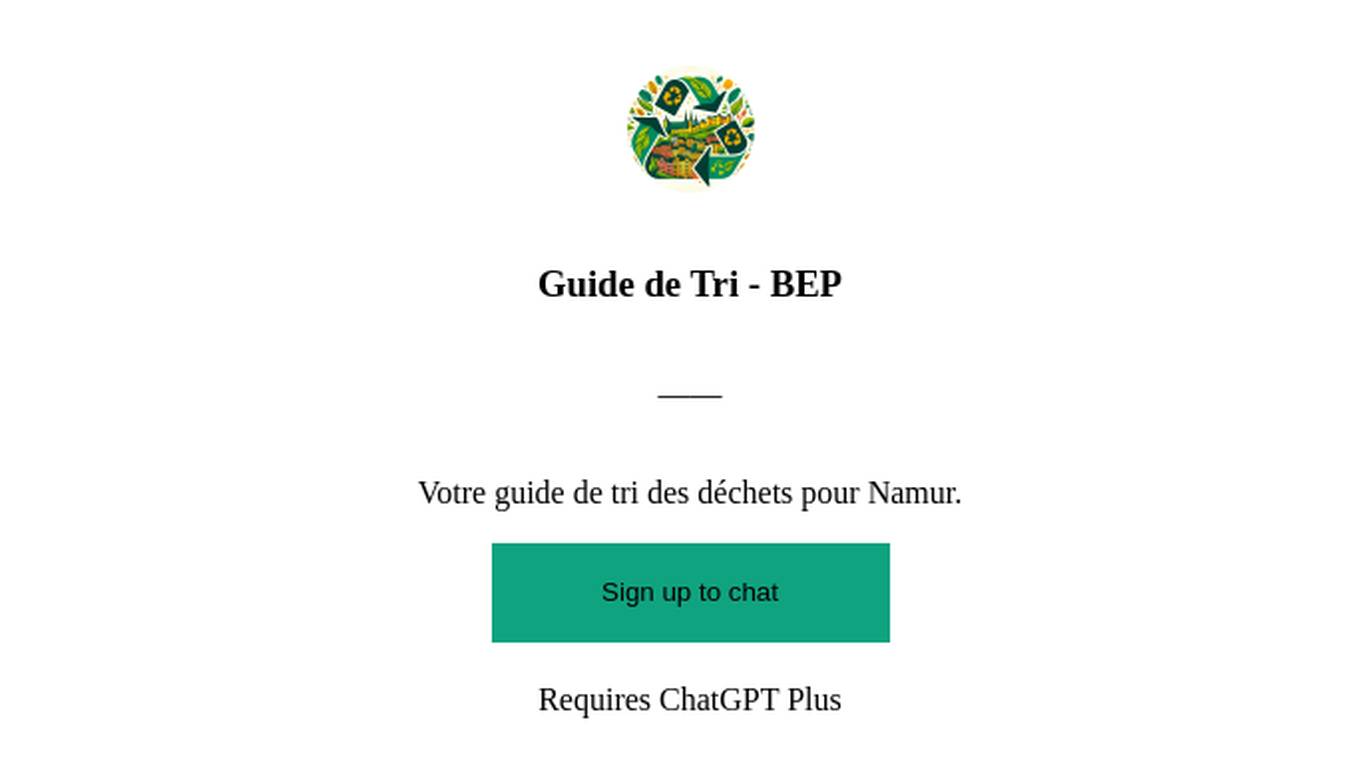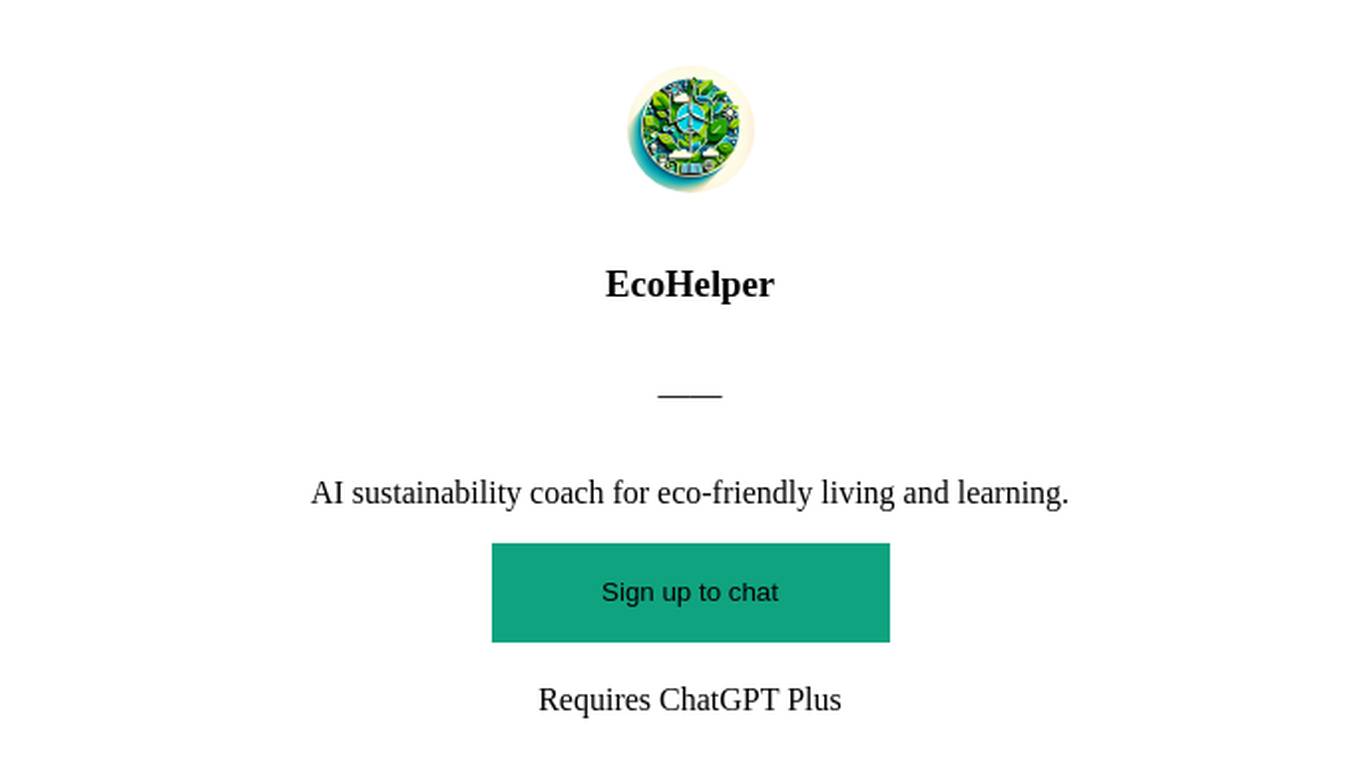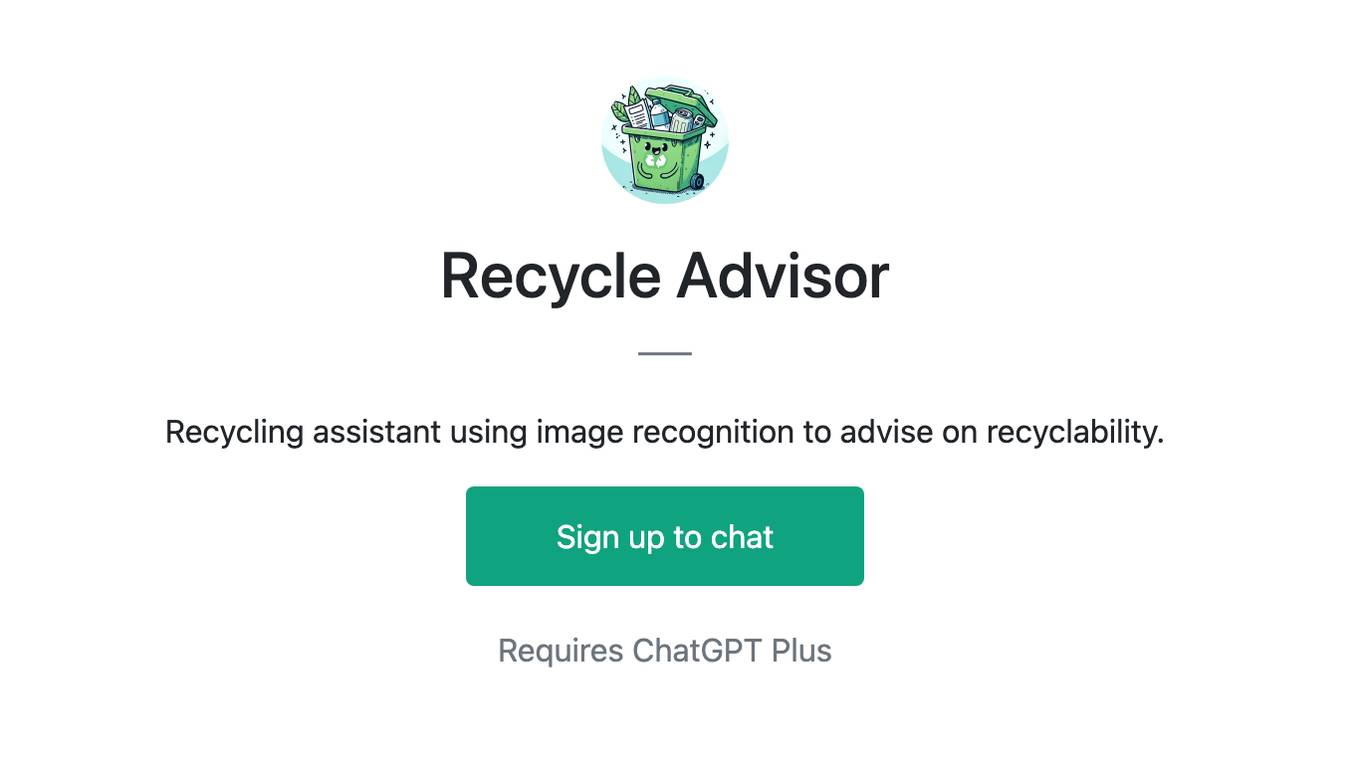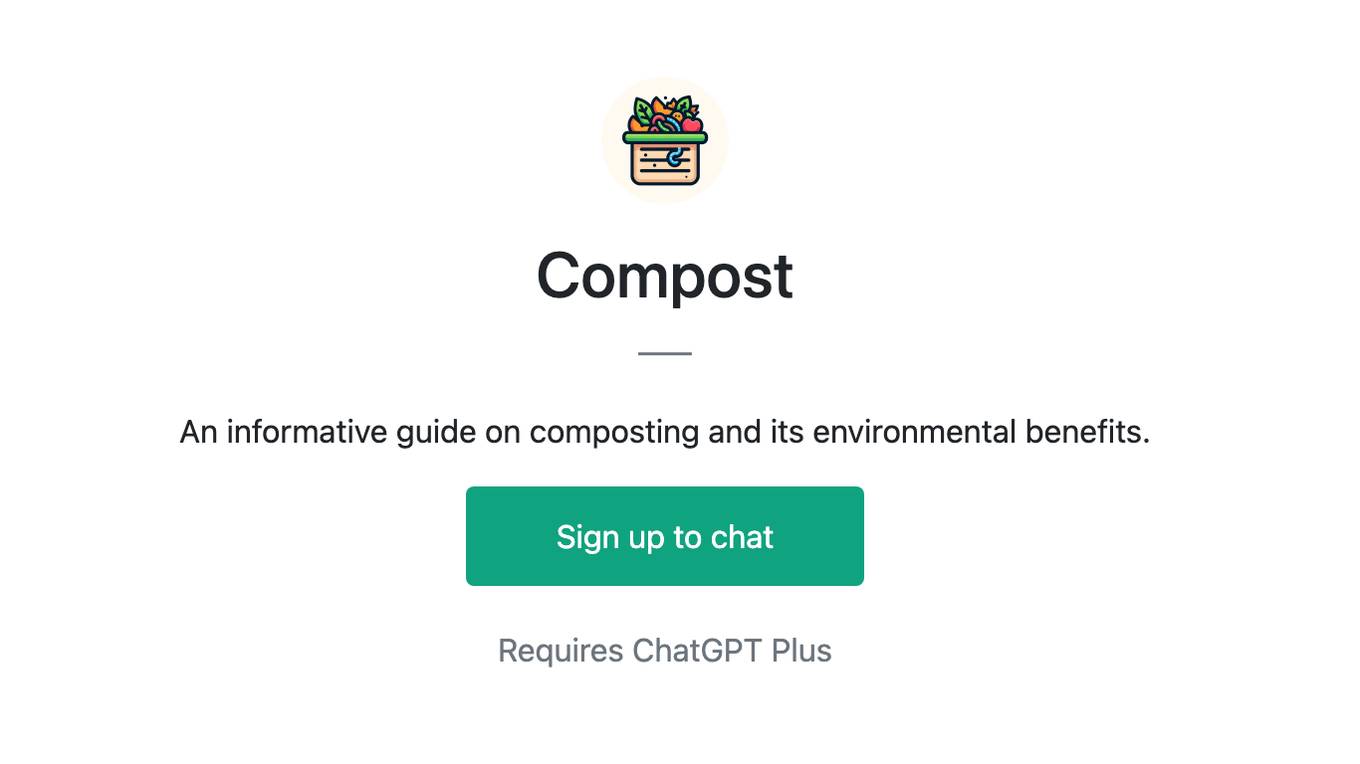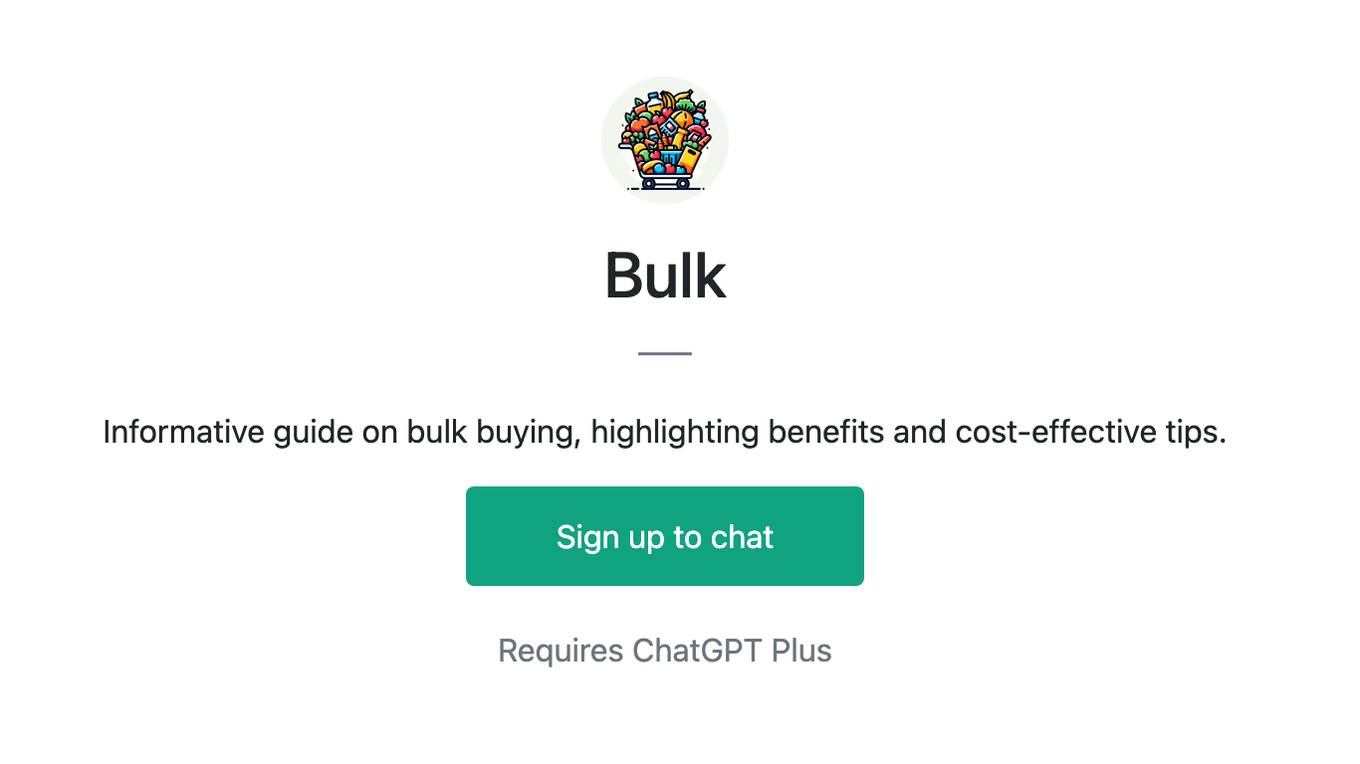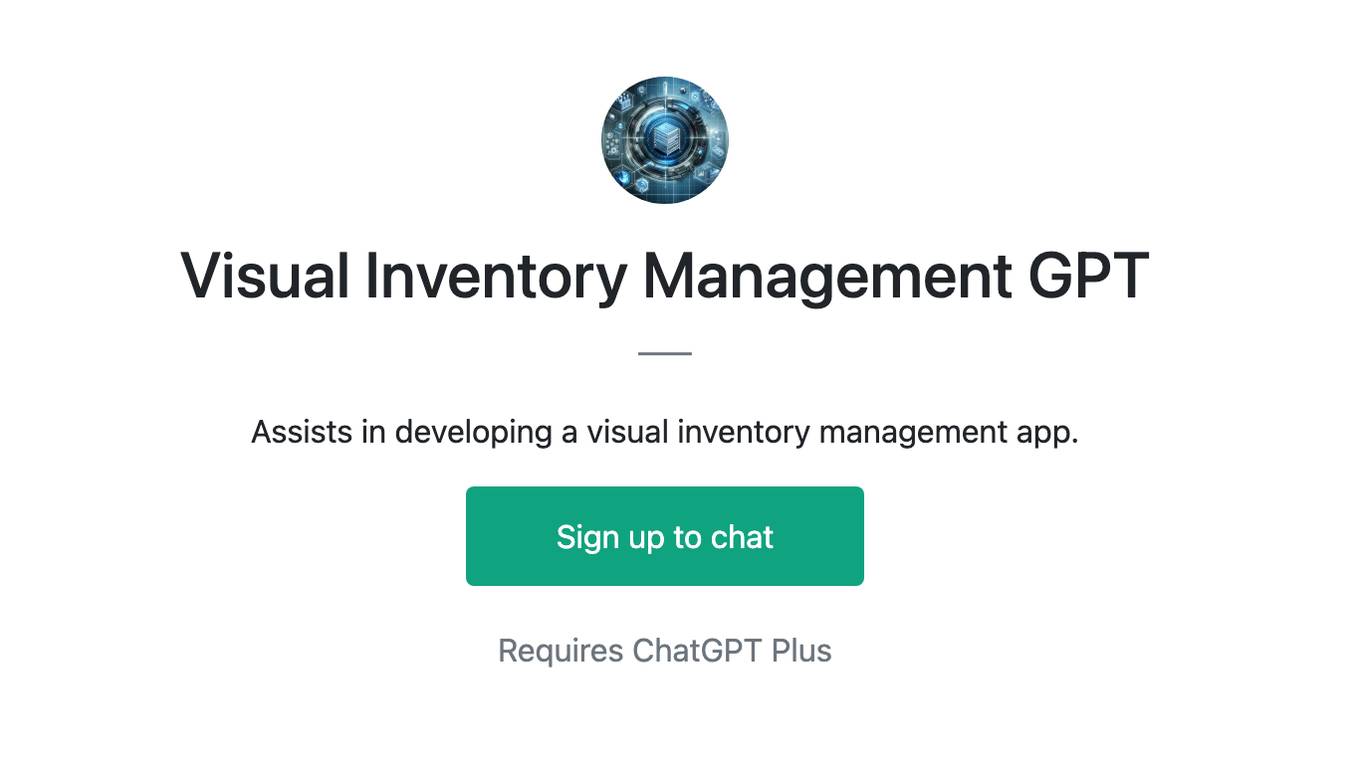Best AI tools for< Reduce Waste Generation >
20 - AI tool Sites
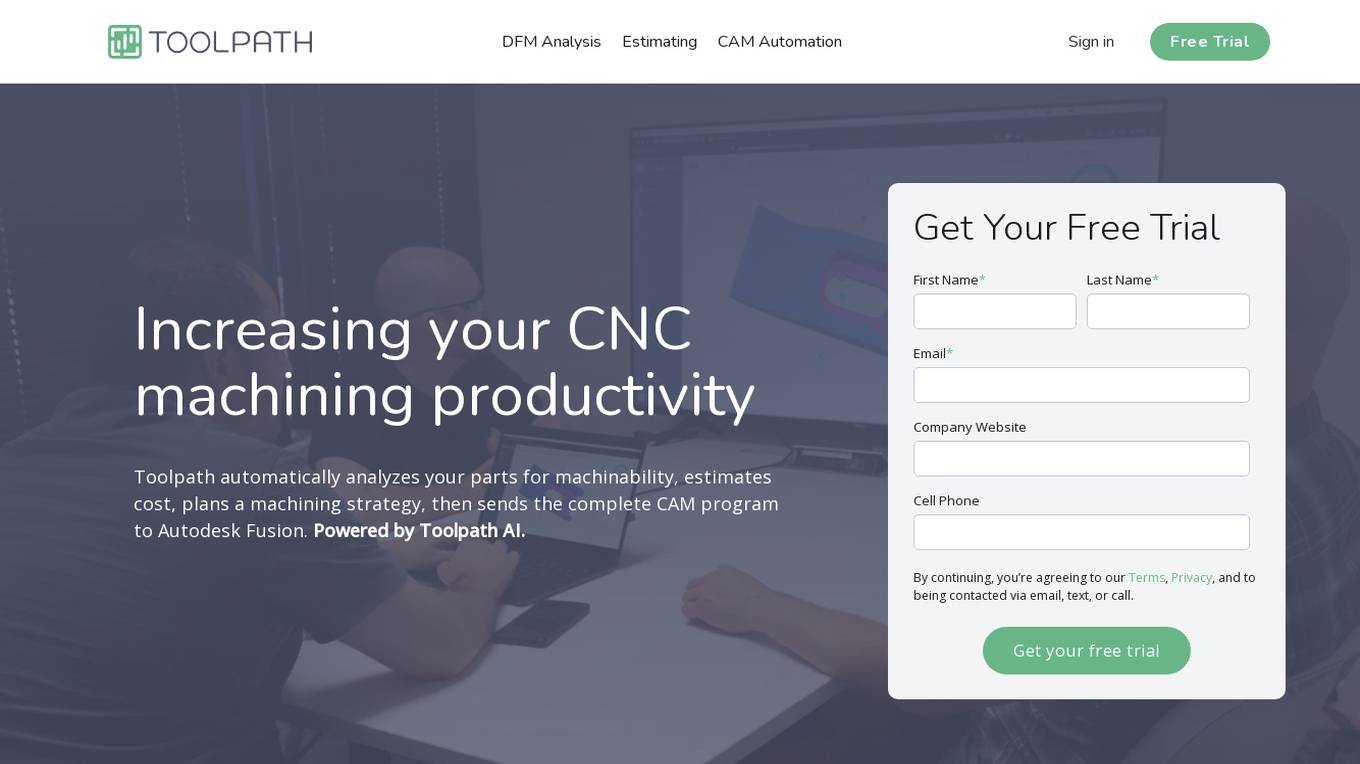
Toolpath
Toolpath is an AI-powered CAM automation tool for CNC machining. It analyzes parts for machinability, estimates costs, plans machining strategies, and generates CAM programs for Autodesk Fusion. The tool utilizes AI to optimize toolpaths and increase CNC machining productivity. Toolpath simplifies workflow by automating setup and toolpath generation, allowing users to focus on machining. It offers intelligent estimating, seamless CAM integration, and design for manufacturing capabilities. Designed by machinists, Toolpath aims to help both new and experienced users save time, reduce waste, and enhance productivity in the field of CNC machining.
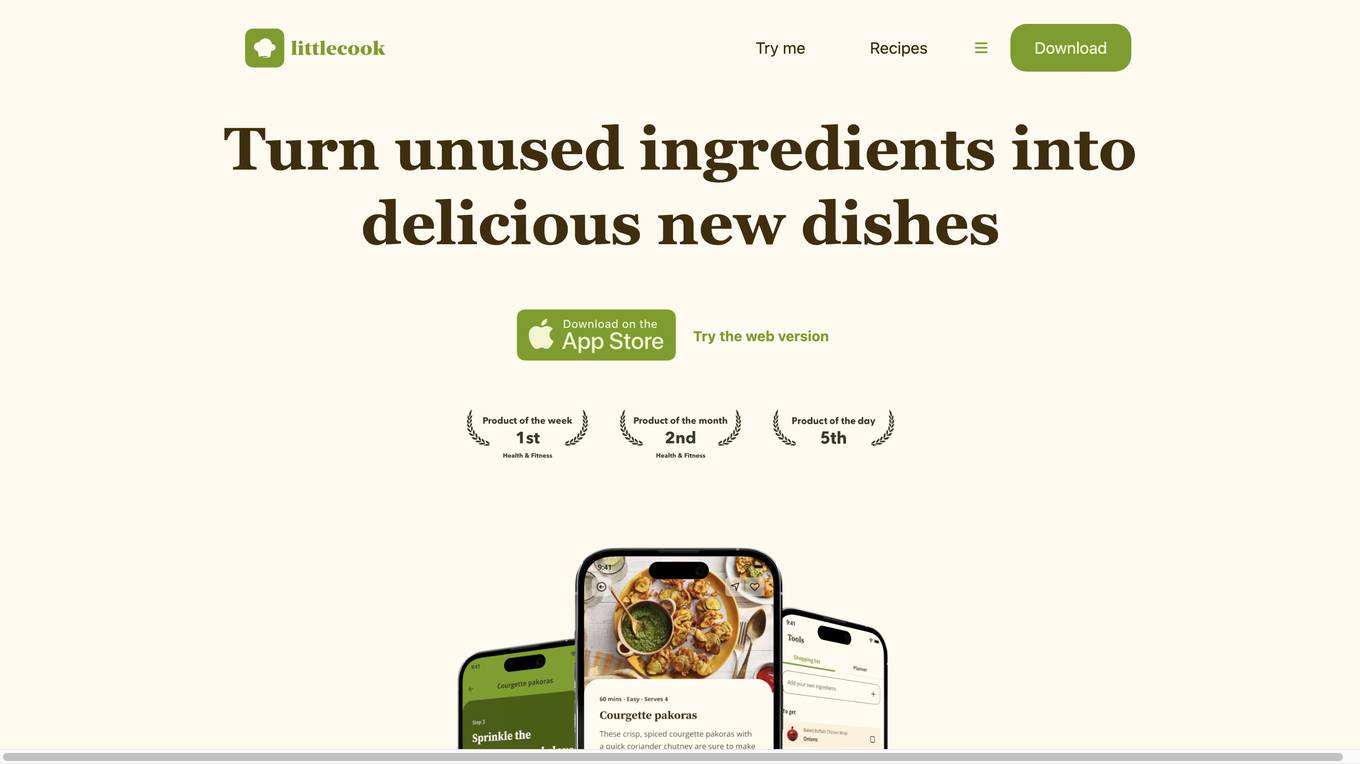
LittleCook
LittleCook is a web and mobile application that helps users reduce food waste and save money by providing recipes based on the ingredients they already have on hand. The app also allows users to track their food inventory, plan their meals, and learn about nutrition. LittleCook is a valuable tool for anyone who wants to cook more efficiently and sustainably.
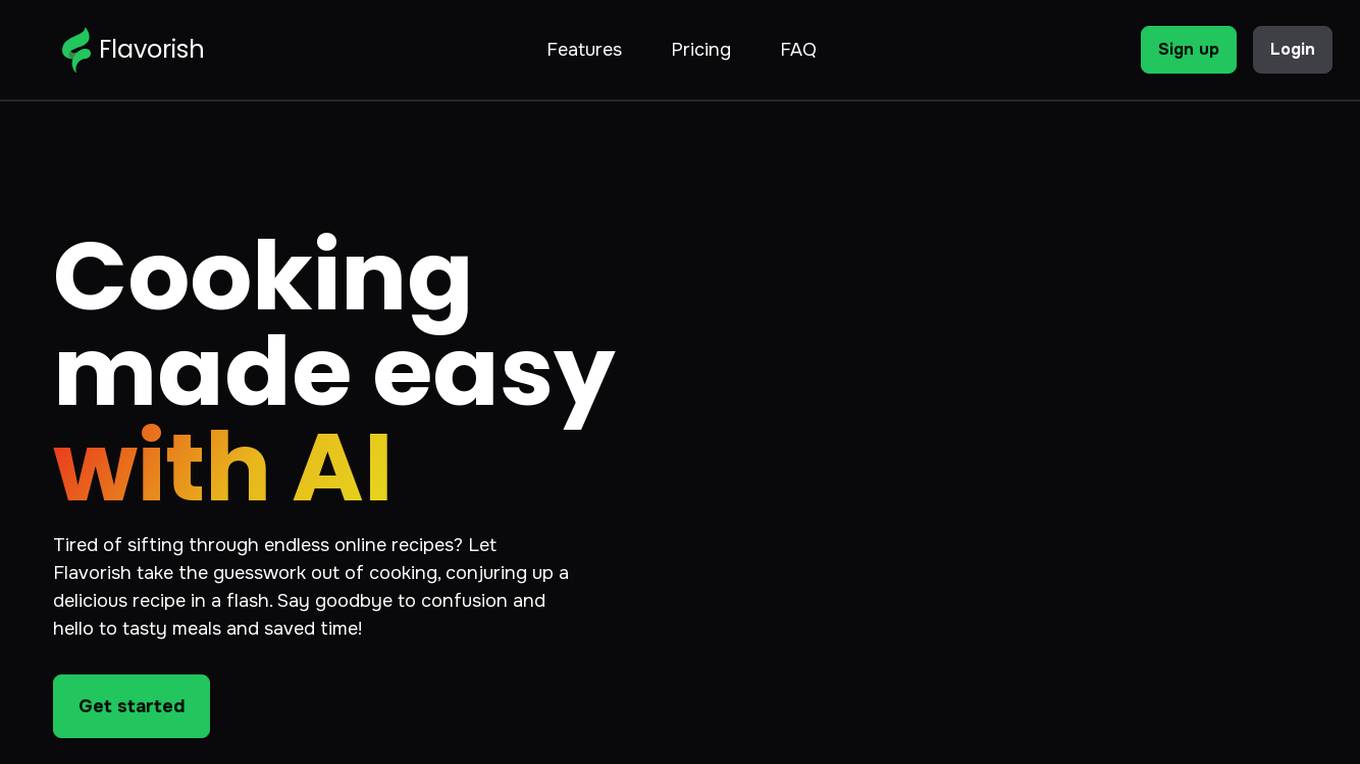
Flavorish
Flavorish is an AI-powered cooking assistant that helps users create delicious meals with ease. It offers a range of features to simplify the cooking process, including AI-powered recipe generation, smart shopping lists, recipe storage, and offline mode. With Flavorish, users can save time, reduce food waste, and explore new cuisines with confidence.

FoodiePrep
FoodiePrep is an AI-powered application that offers personalized recipes and meal planning solutions. Users can enjoy tailored recipe suggestions based on their preferences and dietary needs, as well as efficient meal planning tools. The platform aims to revolutionize the way users approach cooking by providing diverse cuisine options, health-conscious choices, and a virtual culinary assistant named Chef Foodie. With features like end-to-end meal planning, recipe generation, meal planner, smart shopping lists, and ingredient management, FoodiePrep caters to individuals looking to save time, eat healthier, and reduce food waste.
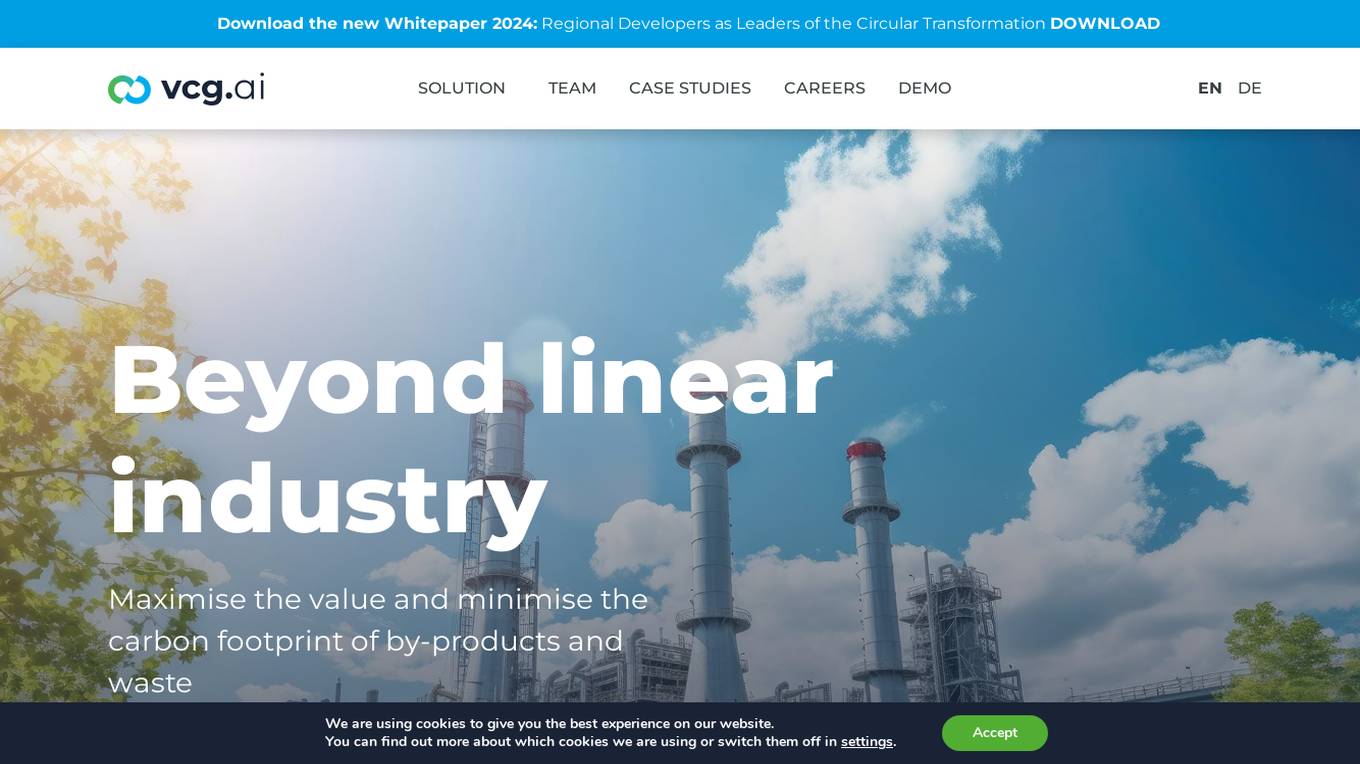
Value Chain Generator®
The Value Chain Generator® is an AI & Big Data platform for circular bioeconomy that helps companies, waste processors, and regions maximize the value and minimize the carbon footprint of by-products and waste. It uses global techno-economic and climate intelligence to identify circular opportunities, match with suitable partners and technologies, and create profitable and impactful solutions. The platform accelerates the circular transition by integrating local industries through technology, reducing waste, and increasing profits.
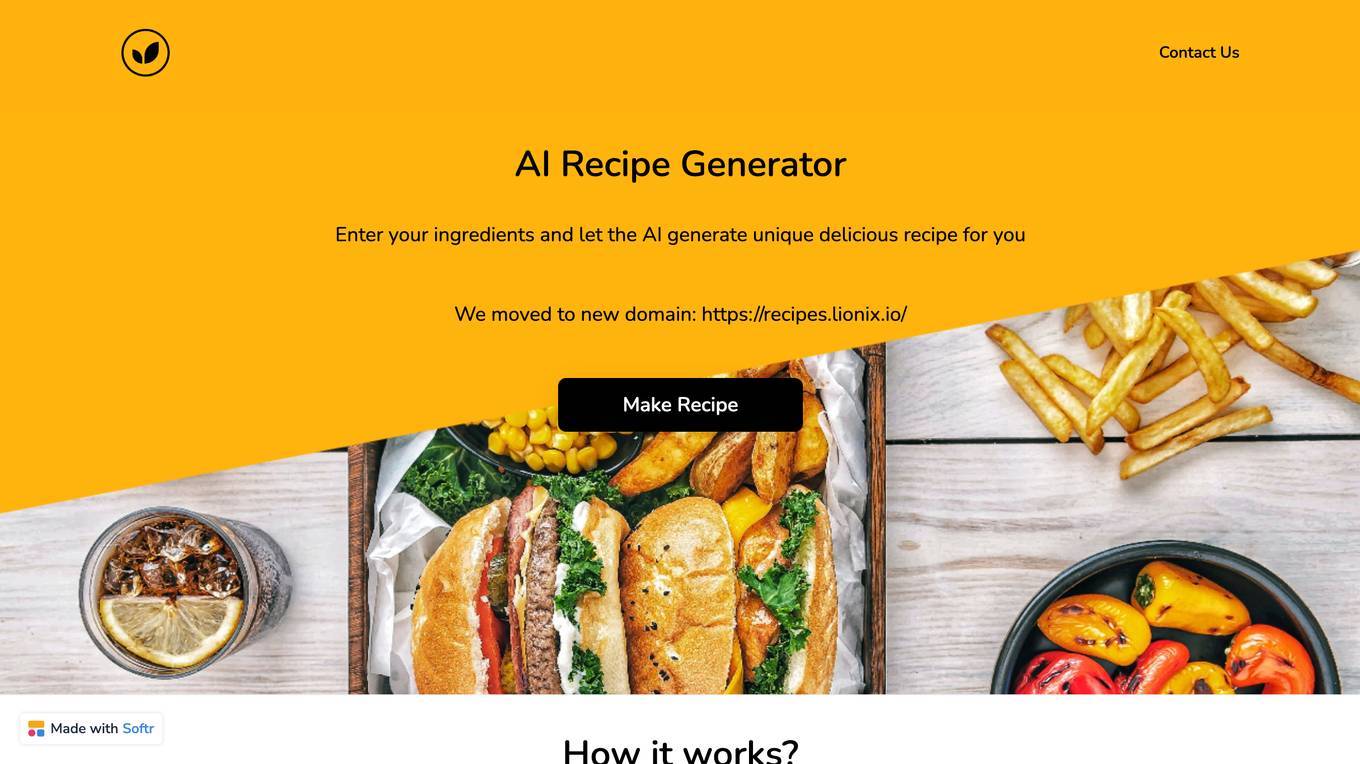
AI Recipe Generator
AI Recipe Generator is a user-friendly tool that helps you create delicious meals using ingredients you already have at home. With just a few clicks, you can generate a unique recipe tailored to your preferences and dietary restrictions. The AI-powered algorithm analyzes your ingredients and suggests recipes that are both tasty and nutritious.
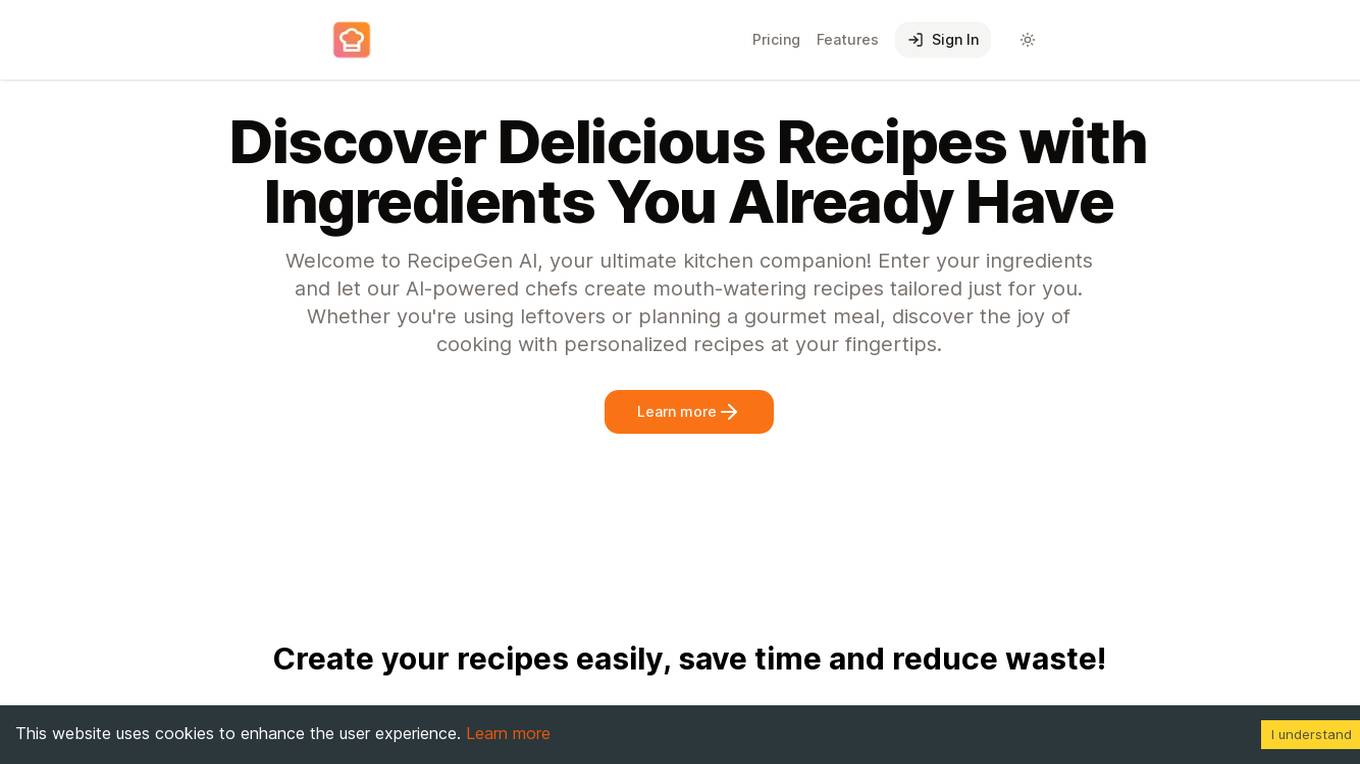
RecipeGen AI
RecipeGen AI is an AI-powered application that helps users discover delicious recipes based on the ingredients they already have. It offers personalized recipes tailored to individual preferences, reducing food waste and enhancing creativity in cooking. With a variety of chefs and ingredients to choose from, RecipeGen AI simplifies the recipe search process and saves time in meal planning.
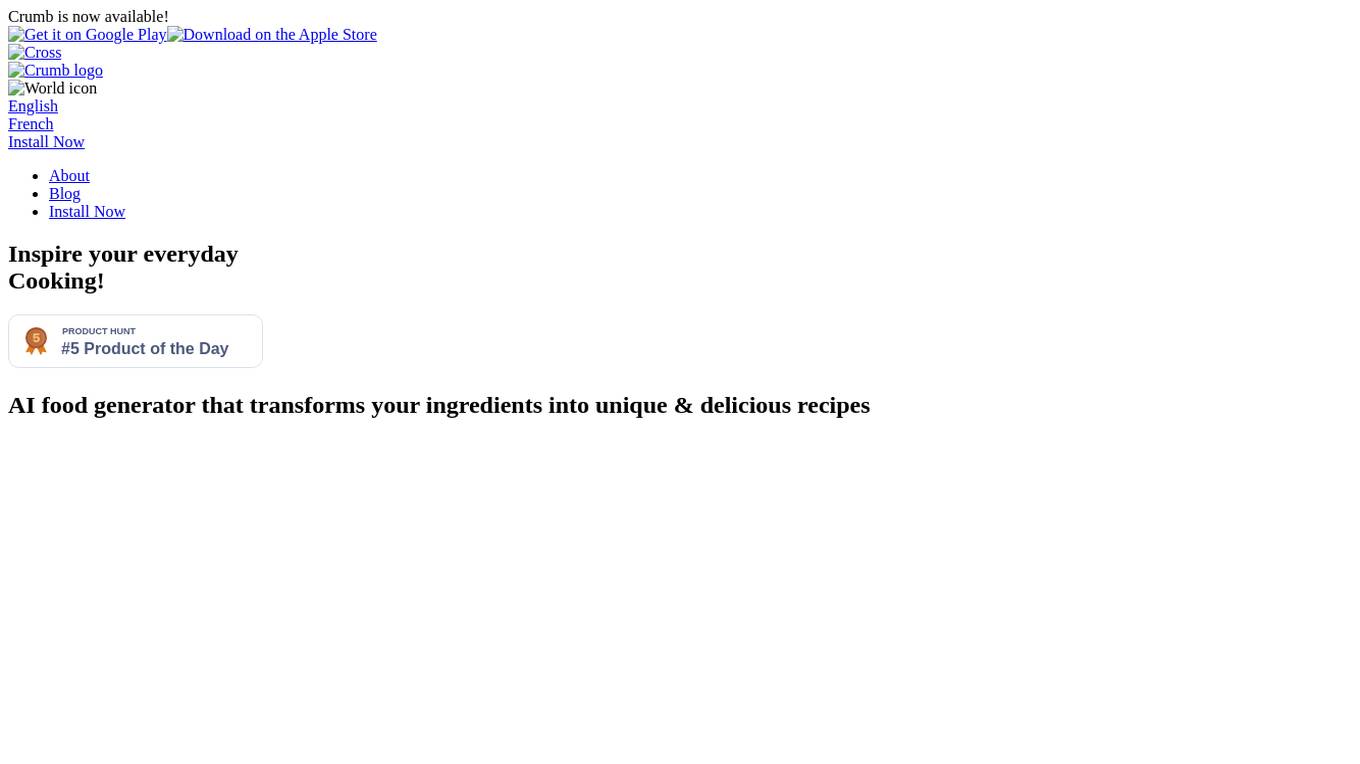
Crumb
Crumb is an AI food generator application that helps users create unique and delicious recipes by transforming their available ingredients. Users can simply dictate their ingredients to the AI tool, which then generates recipes to inspire everyday cooking and reduce food waste. With a variety of recipe ideas and tips available on the blog, Crumb aims to make cooking more creative and convenient for users.
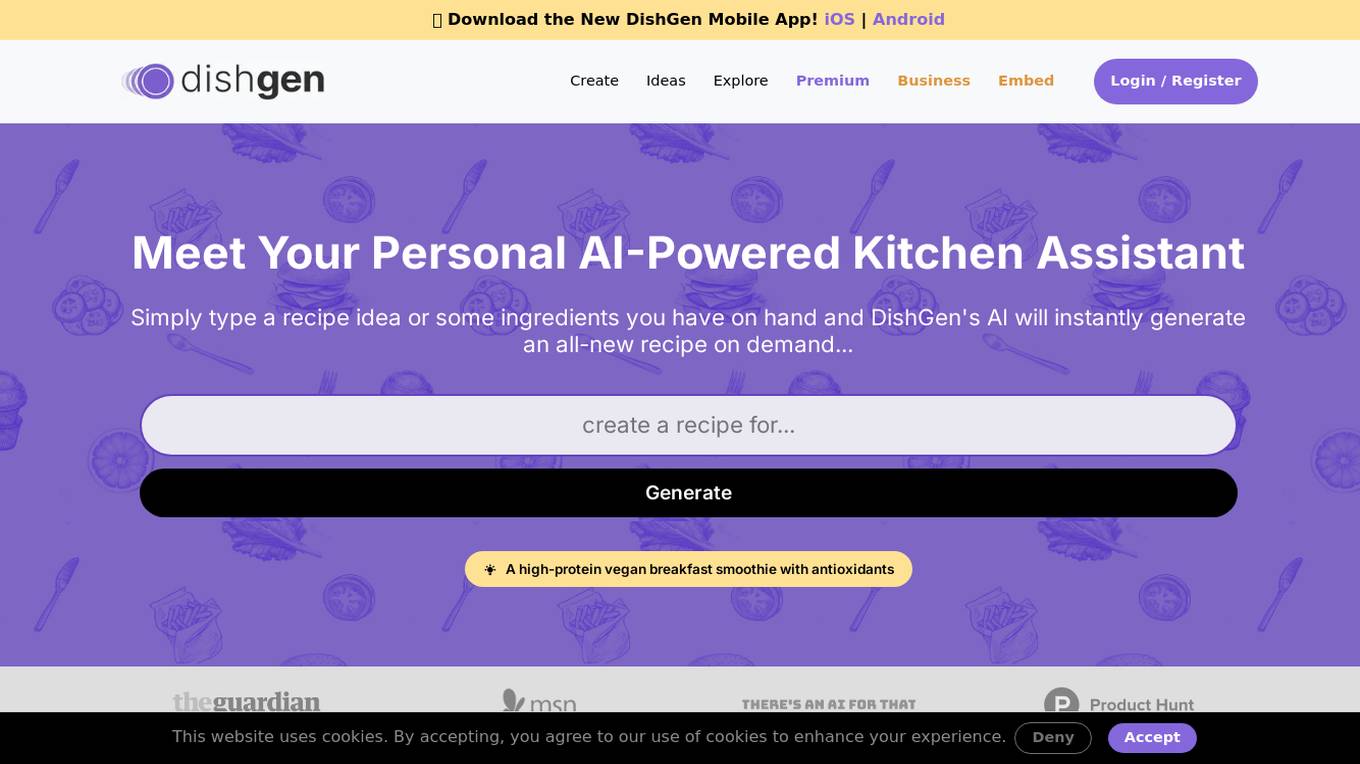
DishGen
DishGen is a revolutionary AI-powered recipe generator that transforms the way we plan and prepare meals. By simply typing a recipe idea or listing ingredients, DishGen's AI instantly generates a unique recipe. It helps reduce food waste, save money, and offers infinite recipe possibilities. The platform offers free basic accounts and premium options with powerful features for personalized meal planning. DishGen is designed to make meal planning creative, efficient, and enjoyable.

ScrappyChef
ScrappyChef is an AI-powered application that helps users turn leftovers into creative meals. It offers a variety of recipes based on the ingredients available, making meal planning easier and more efficient. Users can subscribe to access more recipes and make the most out of their leftovers.

Coram AI
Coram AI is a modern business video security platform that offers AI-powered solutions for various industries such as warehouse, manufacturing, healthcare, education, and more. It provides advanced features like gun detection, productivity alerts, facial recognition, and safety alerts to enhance security and operations. Coram AI's flexible architecture allows users to seamlessly integrate with any IP camera and scale effortlessly to meet their demands. With natural language search capabilities, users can quickly find relevant footage and improve decision-making. Trusted by local businesses and Fortune 500 companies, Coram AI delivers real business value through innovative AI tools and reliable customer support.
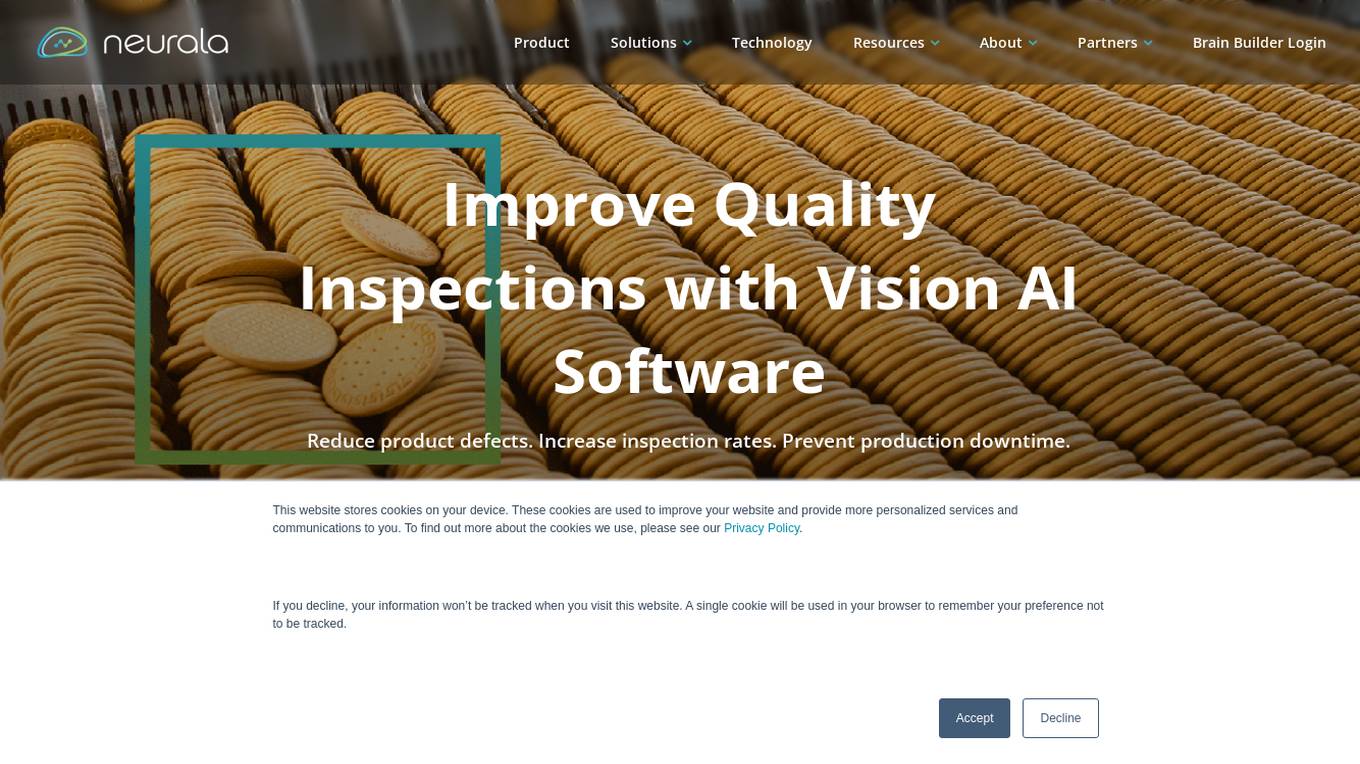
Neurala
Neurala is a company that provides visual quality inspection software powered by AI. Their software is designed to help manufacturers improve their inspection process by reducing product defects, increasing inspection rates, and preventing production downtime. Neurala's software is flexible and can be easily retrofitted into existing production line infrastructure, without the need for AI experts or expensive capital expenditures. The company's software is used by a variety of manufacturers, including Sony, AITRIOS, and CB Insights.

PWI (Polet Wunik International Limited)
PWI (Polet Wunik International Limited) is a company dedicated to sustainable supply chain management and product development services. They partner with startups and brands to turn innovative ideas into successful, sustainable products. PWI focuses on developing eco-friendly products made from natural materials that can be composted at home and promoting sustainability. Their approach includes a system-wide sustainability assessment, aiming to reduce waste and maximize impact. PWI offers services such as new product development, consulting, and contract manufacturing, providing tailored guidance, rapid turnaround, and end-to-end support to their clients.
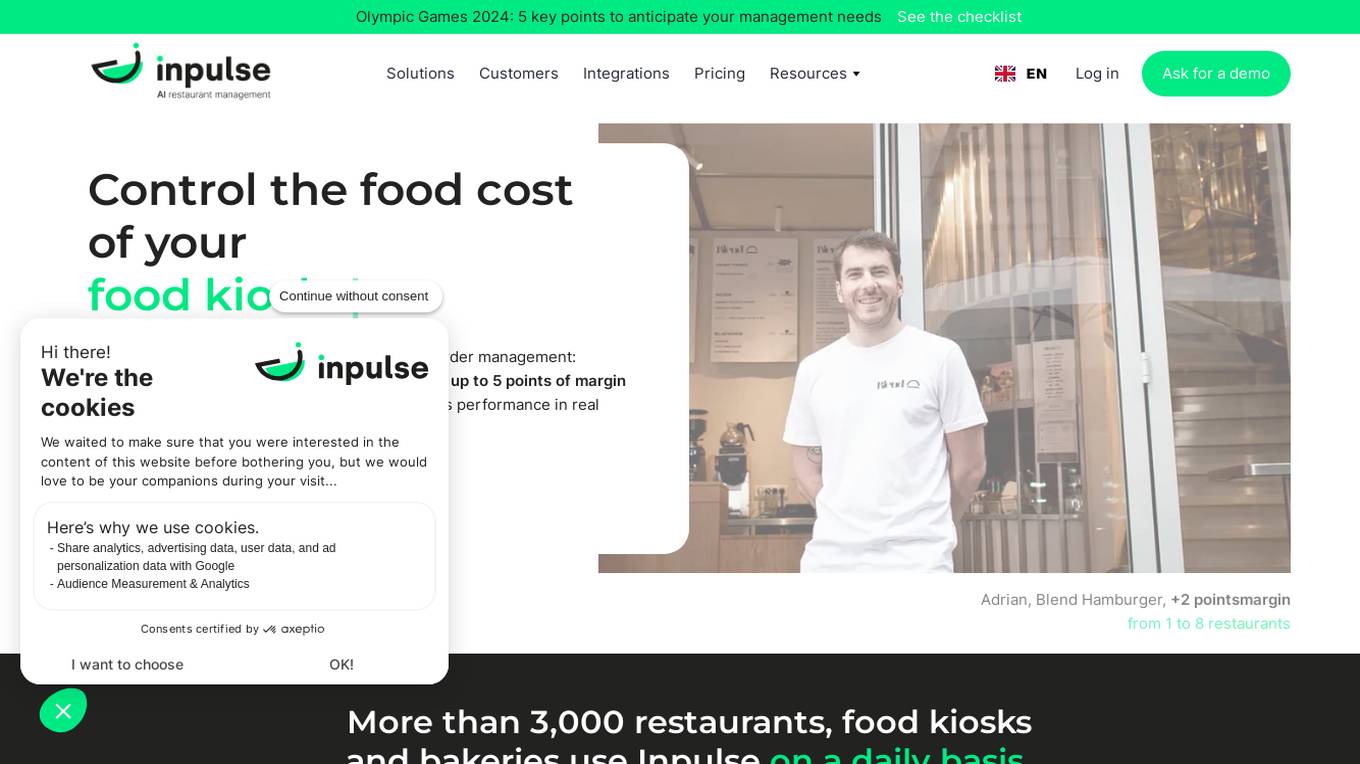
Inpulse.ai
Inpulse.ai is an AI platform that revolutionizes inventory management and supplier ordering for restaurant chains. It assists managers in making informed decisions by accurately forecasting sales, anticipating production needs, and optimizing food supplies. The platform provides real-time performance monitoring, automated production planning, and centralized data management to help restaurants improve their margins and reduce waste. Inpulse.ai is used by over 3,000 restaurants, food kiosks, and bakeries on a daily basis, offering a comprehensive solution to streamline operations and boost profitability.
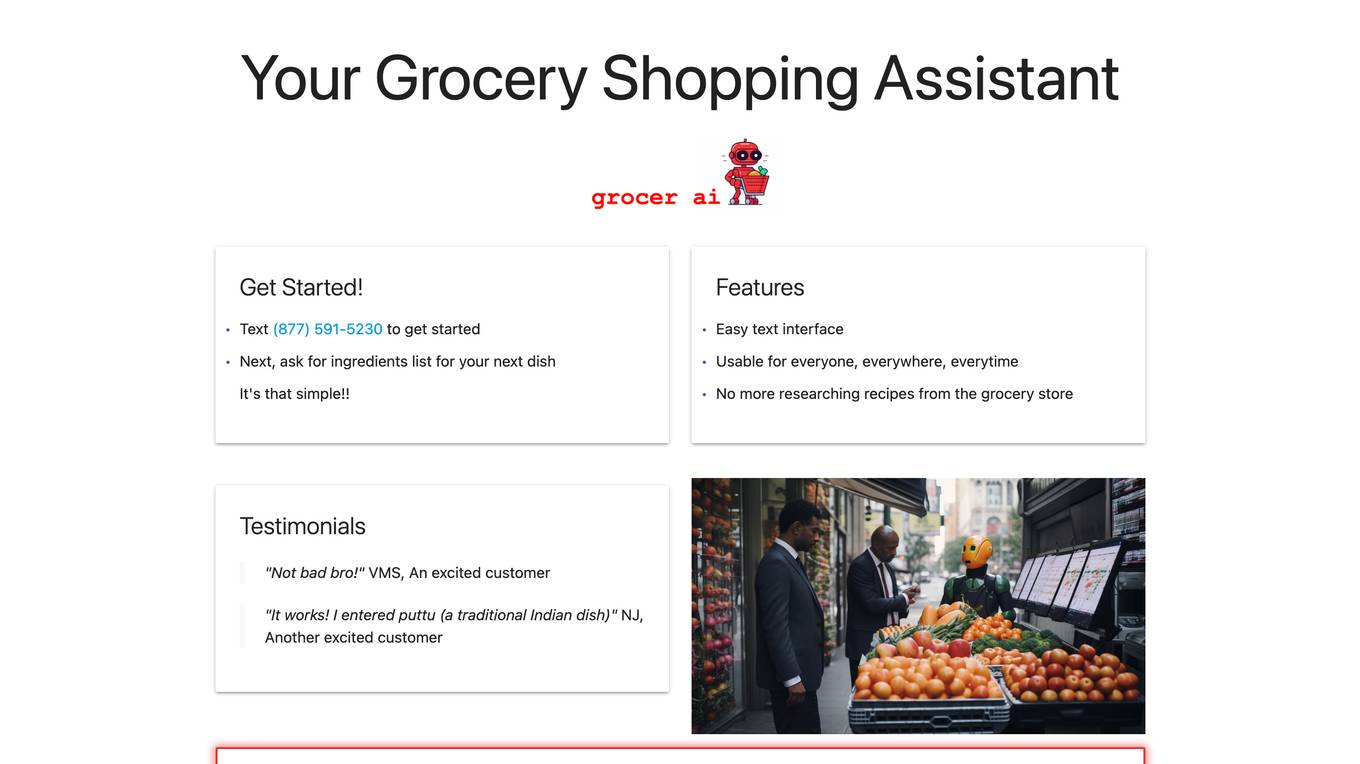
GrocerAI
GrocerAI is an AI-powered meal planning application that optimizes grocery shopping by suggesting recipes based on ingredient overlap. Users can plan their meals for the week or get creative with the ingredients they already have on hand. The application aims to help users shop smarter, eat more, and waste less by reducing food waste and saving time on meal planning. With features like smart recipe discovery, instant meal ideas, and one-click grocery checkout, GrocerAI offers a seamless experience for users looking to simplify their dinner routine.
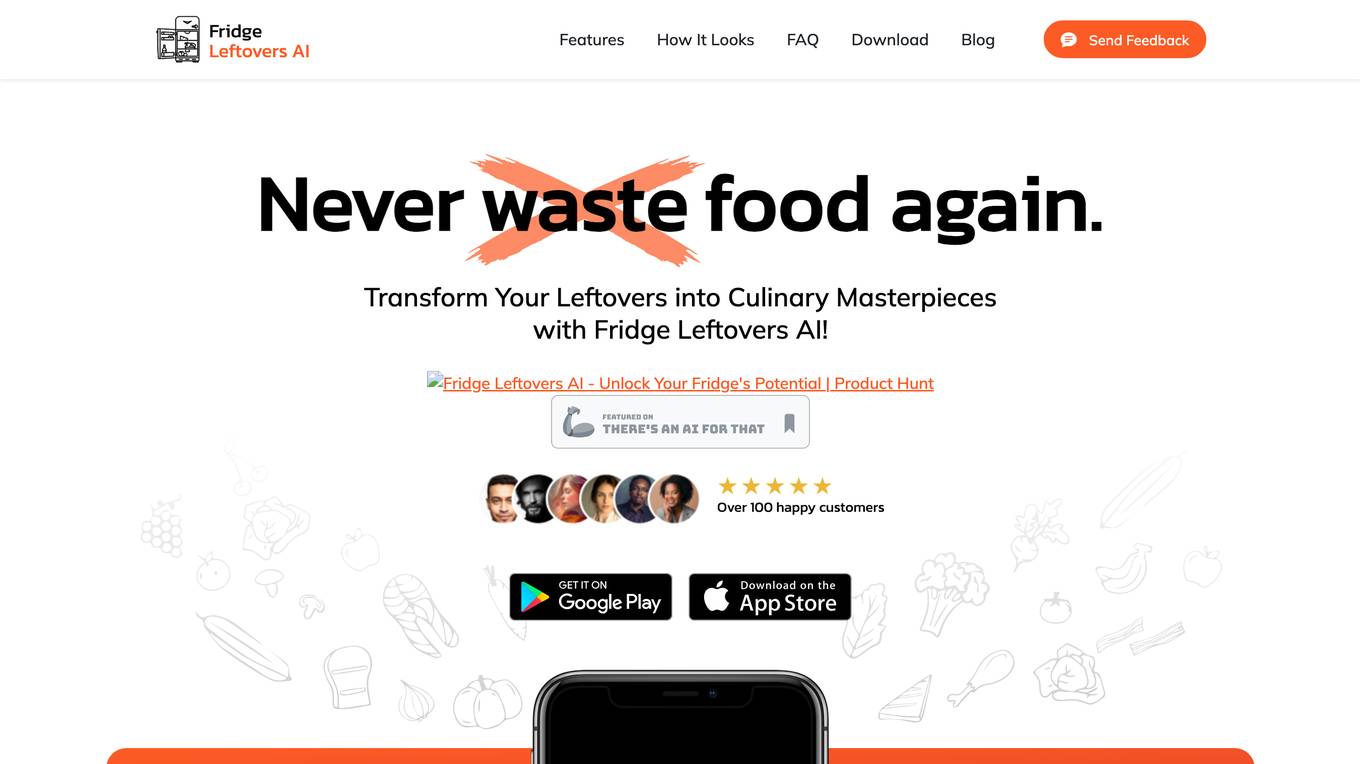
Fridge Leftovers AI
Fridge Leftovers AI is an innovative application that helps users transform their leftover ingredients into delicious meals. By utilizing cutting-edge AI technology, the app provides personalized recipe suggestions based on the ingredients available in the user's fridge. With a user-friendly interface and a focus on reducing food waste, Fridge Leftovers AI aims to simplify meal planning and inspire creativity in the kitchen.
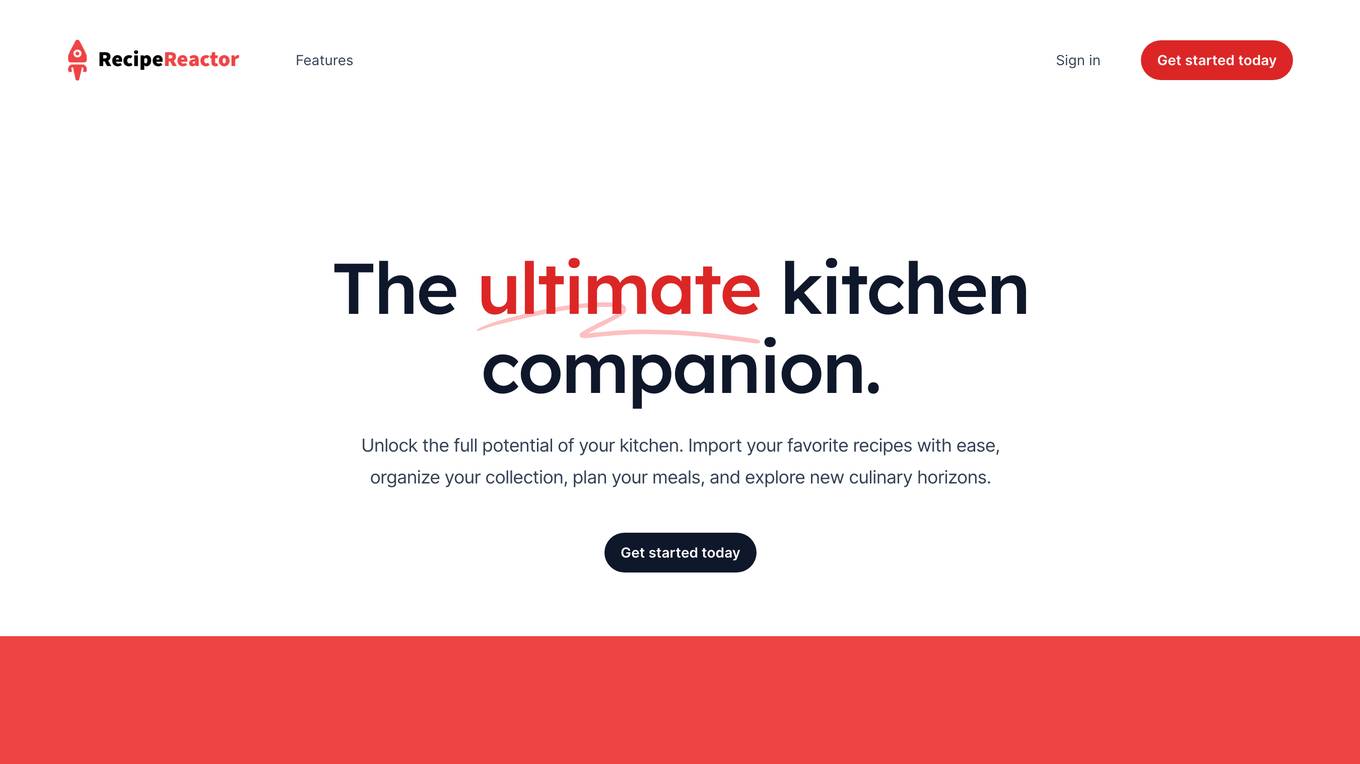
Recipe Reactor
Recipe Reactor is the ultimate kitchen companion that helps users unlock the full potential of their kitchen. It allows users to import, organize, plan meals, and explore new culinary horizons. With AI-powered recipe creation, effortless recipe importing, and comprehensive recipe management, Recipe Reactor simplifies, innovates, and masters the culinary world. Users can turn random ingredients into culinary masterpieces, reduce food waste, and enrich their cooking experience with educational insights.
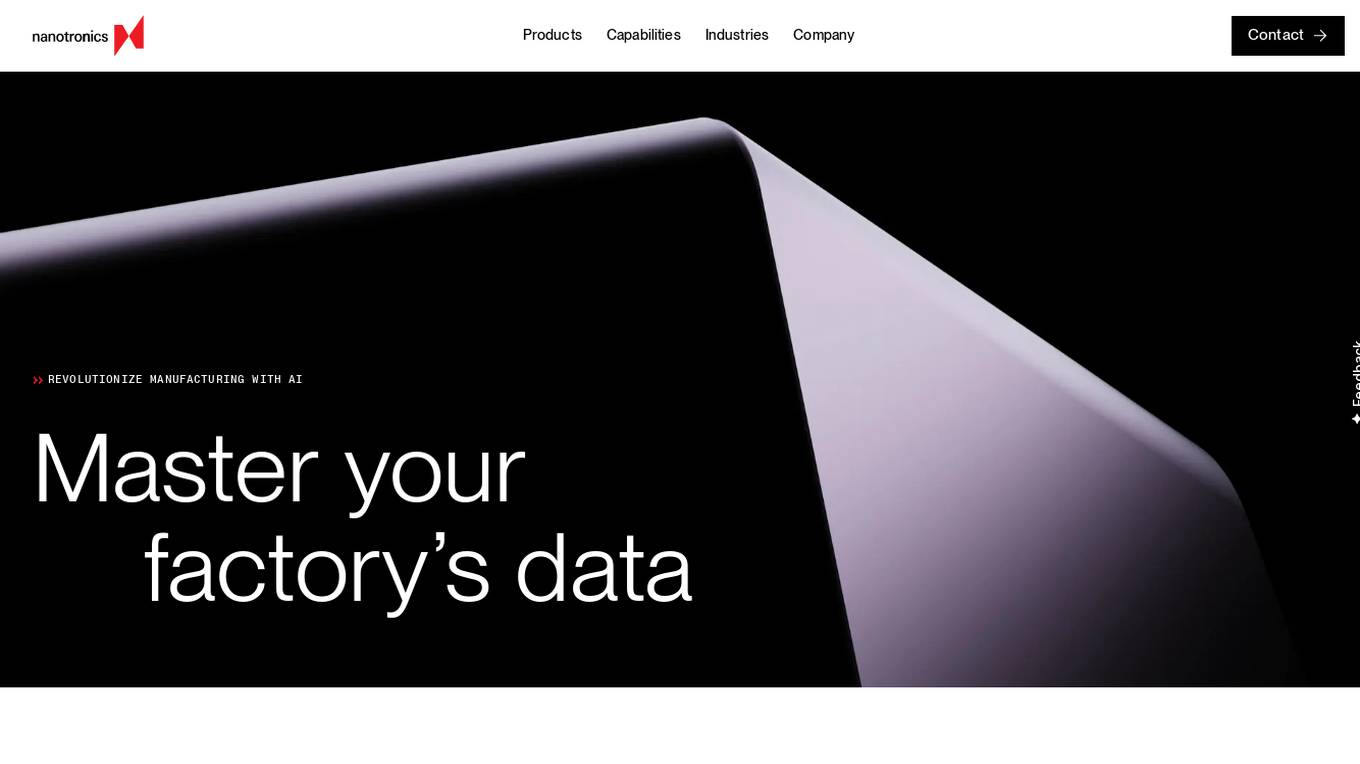
Nanotronics
Nanotronics is an AI-powered platform for autonomous manufacturing that revolutionizes the industry through automated optical inspection solutions. It combines computer vision, AI, and optical microscopy to ensure high-volume production with higher yields, less waste, and lower costs. Nanotronics offers products like nSpec and nControl, leading the paradigm shift in process control and transforming the entire manufacturing stack. With over 150 patents, 250+ deployments, and offices in multiple locations, Nanotronics is at the forefront of innovation in the manufacturing sector.
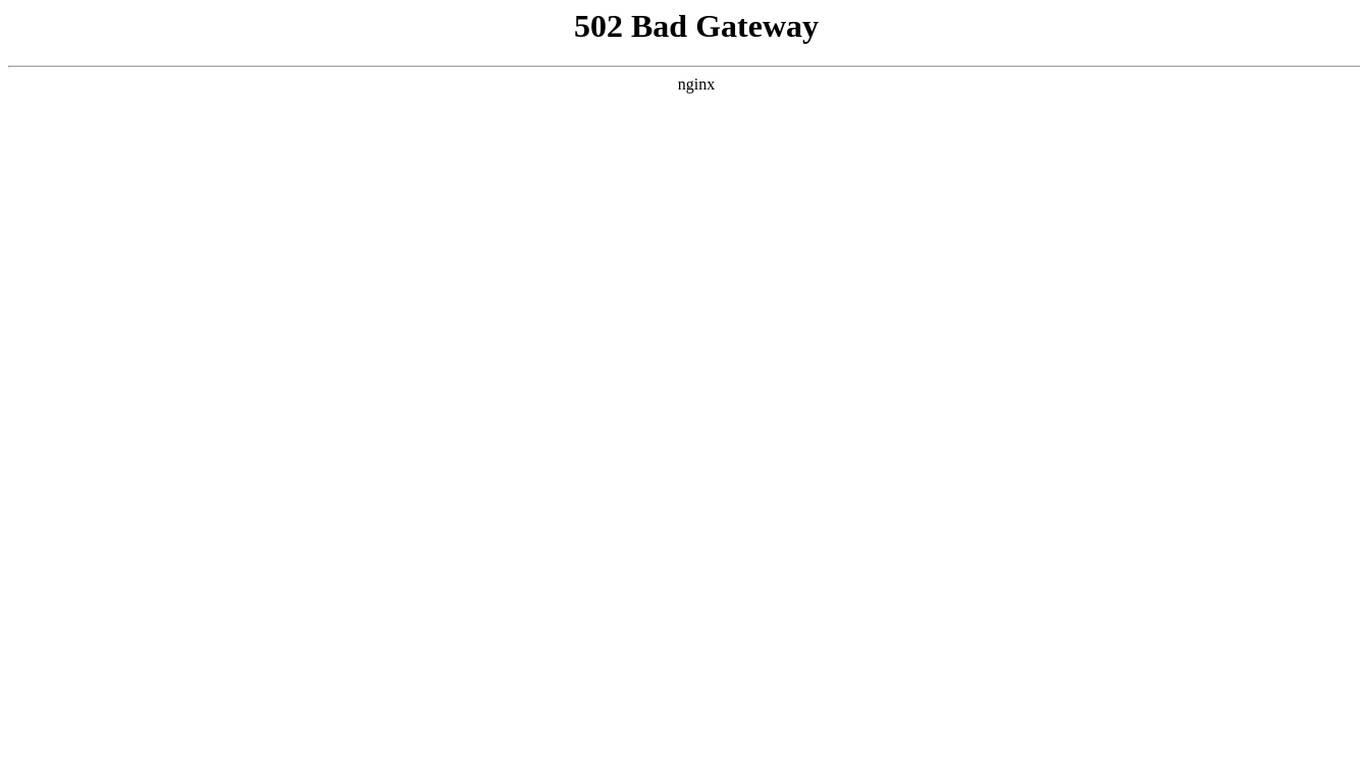
ScanMyKitchen
ScanMyKitchen is an AI-powered application designed to help users create delicious meals using ingredients from their fridge. The app offers a variety of traditional and AI-powered recipe suggestions, customizable filters based on diet preferences, and alternative recipes for flexibility. Users can also utilize the camera scanning feature to scan ingredients and access recipe text or video tutorials. The mission of ScanMyKitchen is to inspire users to cook delicious meals, reduce food waste, save money, and benefit the planet. The app aims to simplify the cooking process and provide a seamless experience for users without the need for sign-ups.
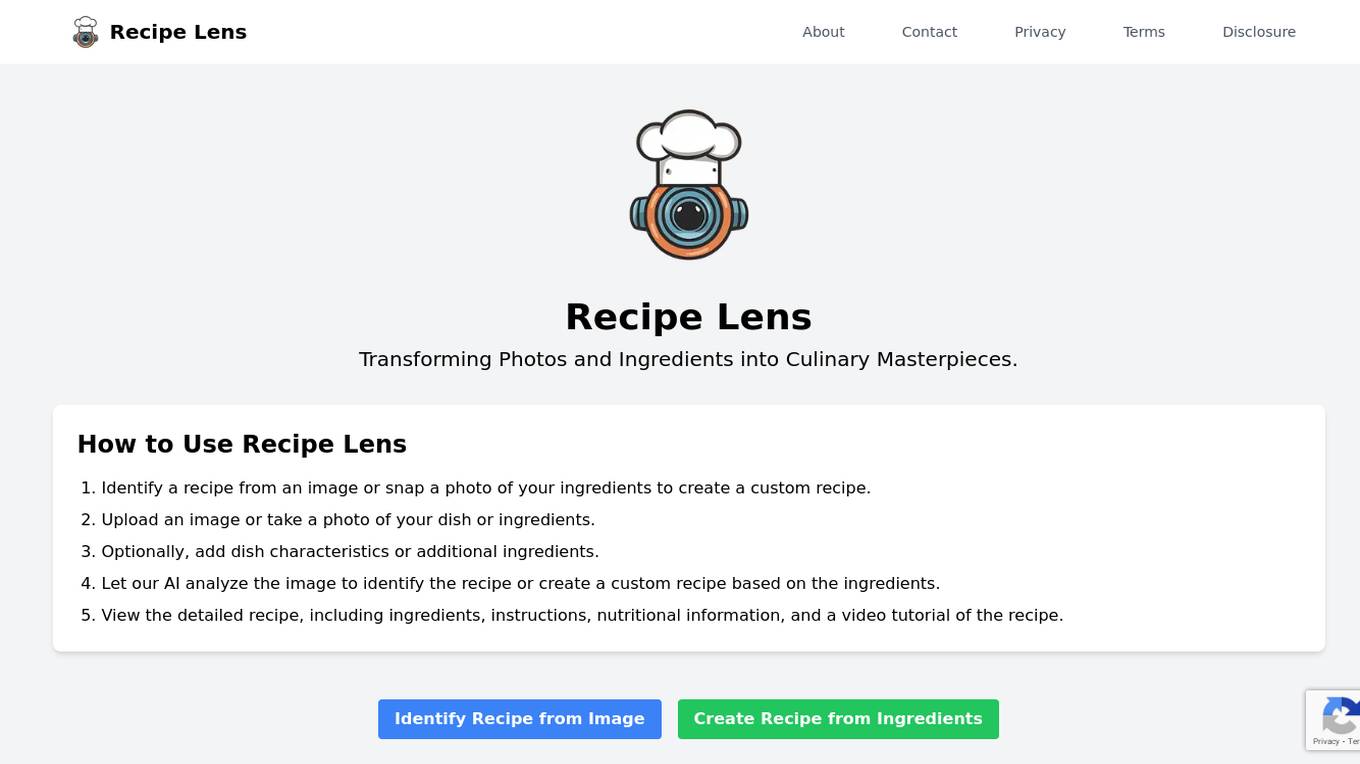
Recipe Lens
Recipe Lens is an AI-powered platform that revolutionizes cooking by transforming photos and ingredients into culinary masterpieces. It offers advanced image recognition to identify dishes from photos and create custom recipes based on available ingredients. The application generates personalized recipes, provides detailed cooking instructions, nutritional information, and video tutorials. Recipe Lens aims to inspire creativity, simplify meal preparation, and empower users to discover new dishes while making the most out of their ingredients.
0 - Open Source AI Tools
20 - OpenAI Gpts
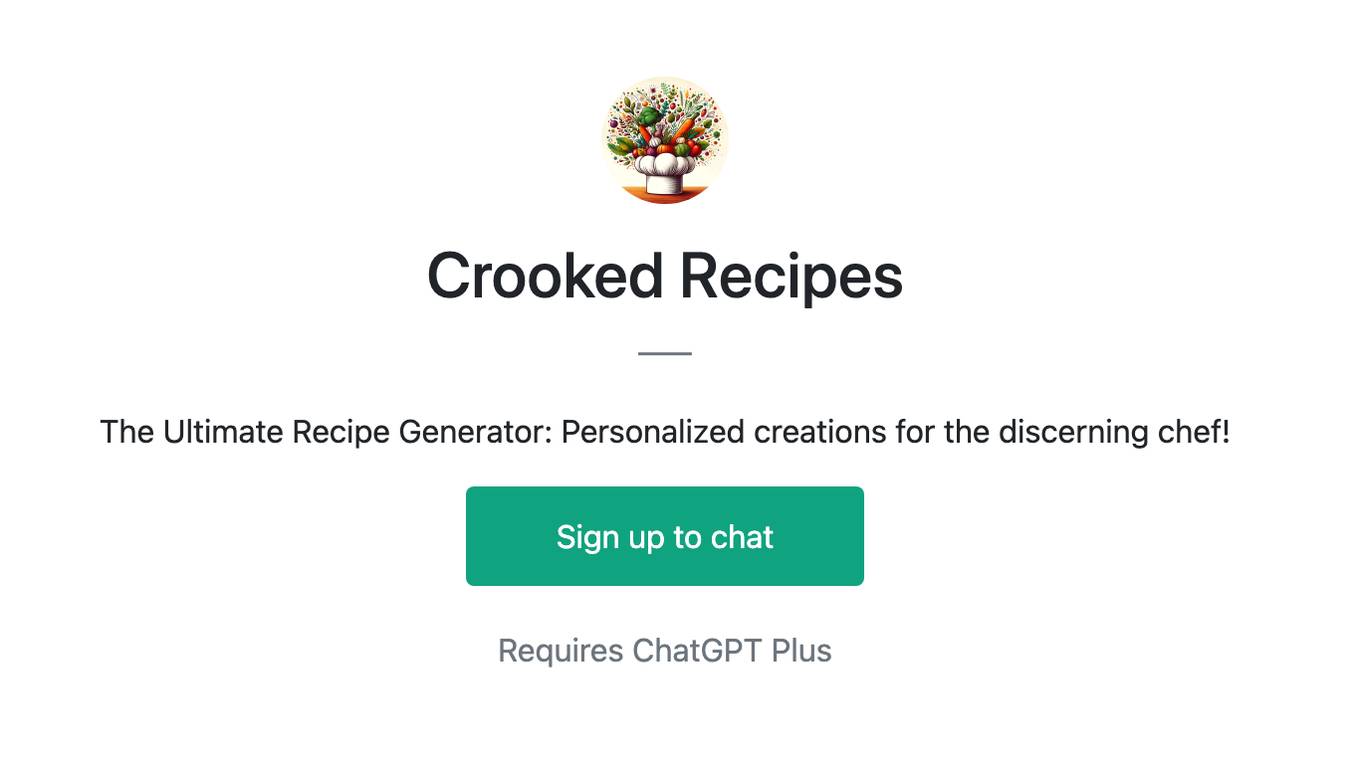
Crooked Recipes
The Ultimate Recipe Generator: Personalized creations for the discerning chef!
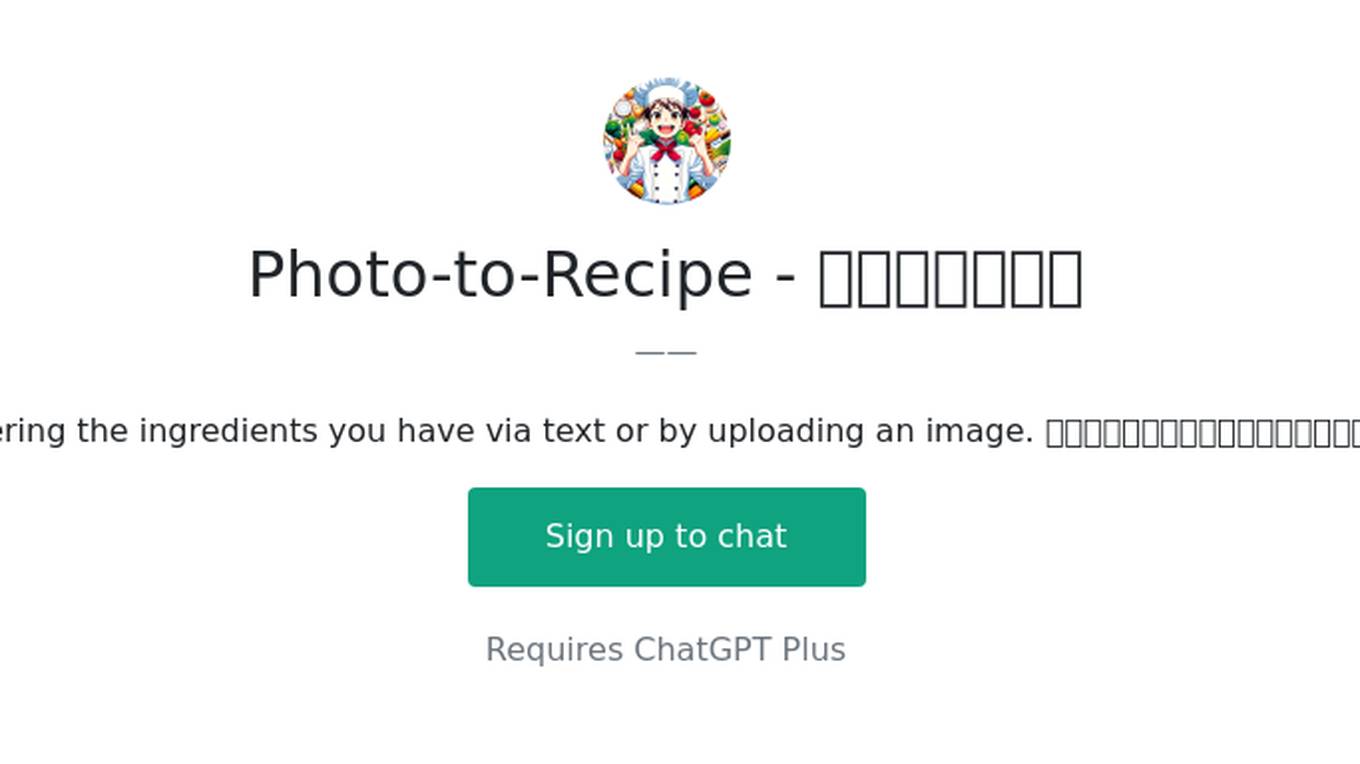
Photo-to-Recipe - レシピの王様!
It generates a recipe by entering the ingredients you have via text or by uploading an image. 家にある材料を入力したり、画像をアップロードすることでレシピを教えてくれます。
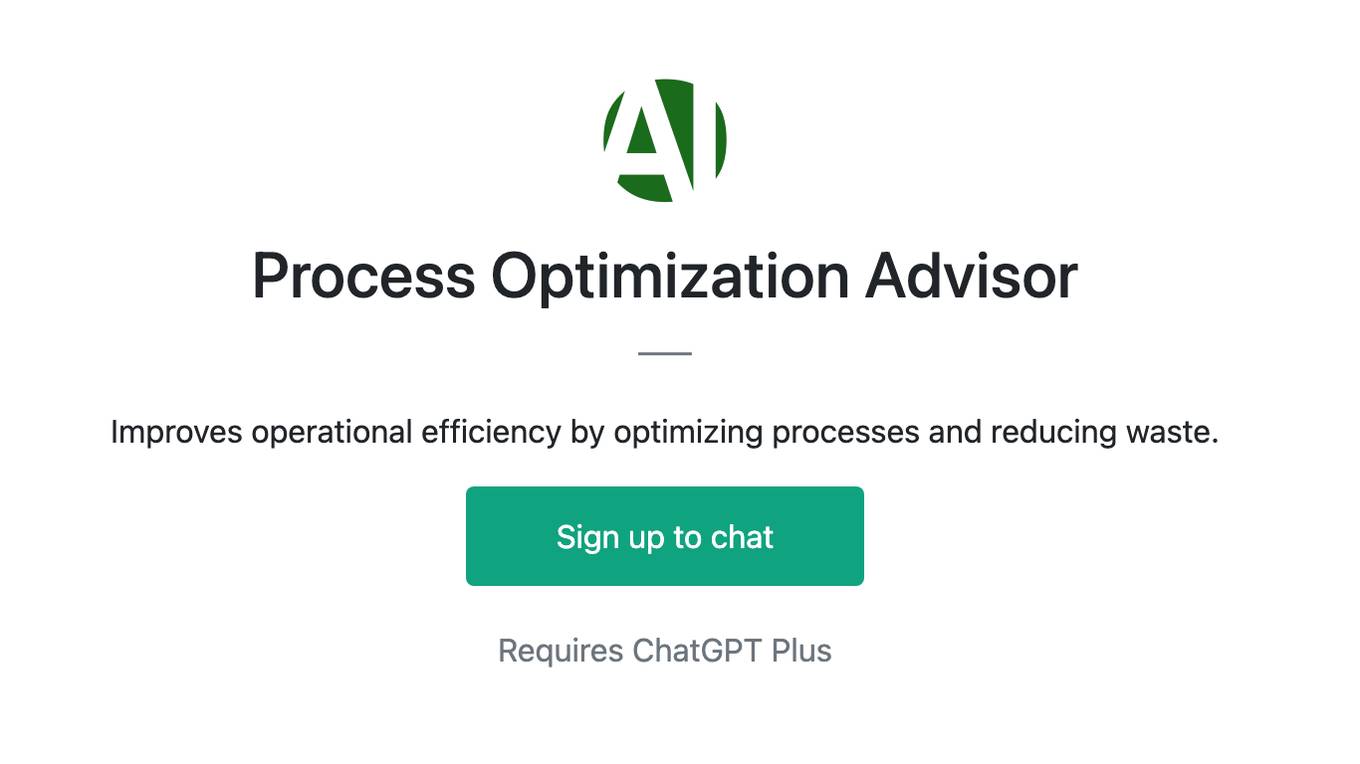
Process Optimization Advisor
Improves operational efficiency by optimizing processes and reducing waste.

Waste Management Expert
Offers strategies for waste reduction, recycling programs, and sustainable waste management practices.

Process Engineering Advisor
Optimizes production processes for improved efficiency and quality.

Manufacturing Process Development Advisor
Optimizes manufacturing processes for efficiency and quality.

Eco Advisor
Your guide to an eco-friendly lifestyle, offering sustainable tips and green solutions.

Eco Guide
A friendly conservationist who helps find easy, eco-friendly solutions for day-to-day living.
